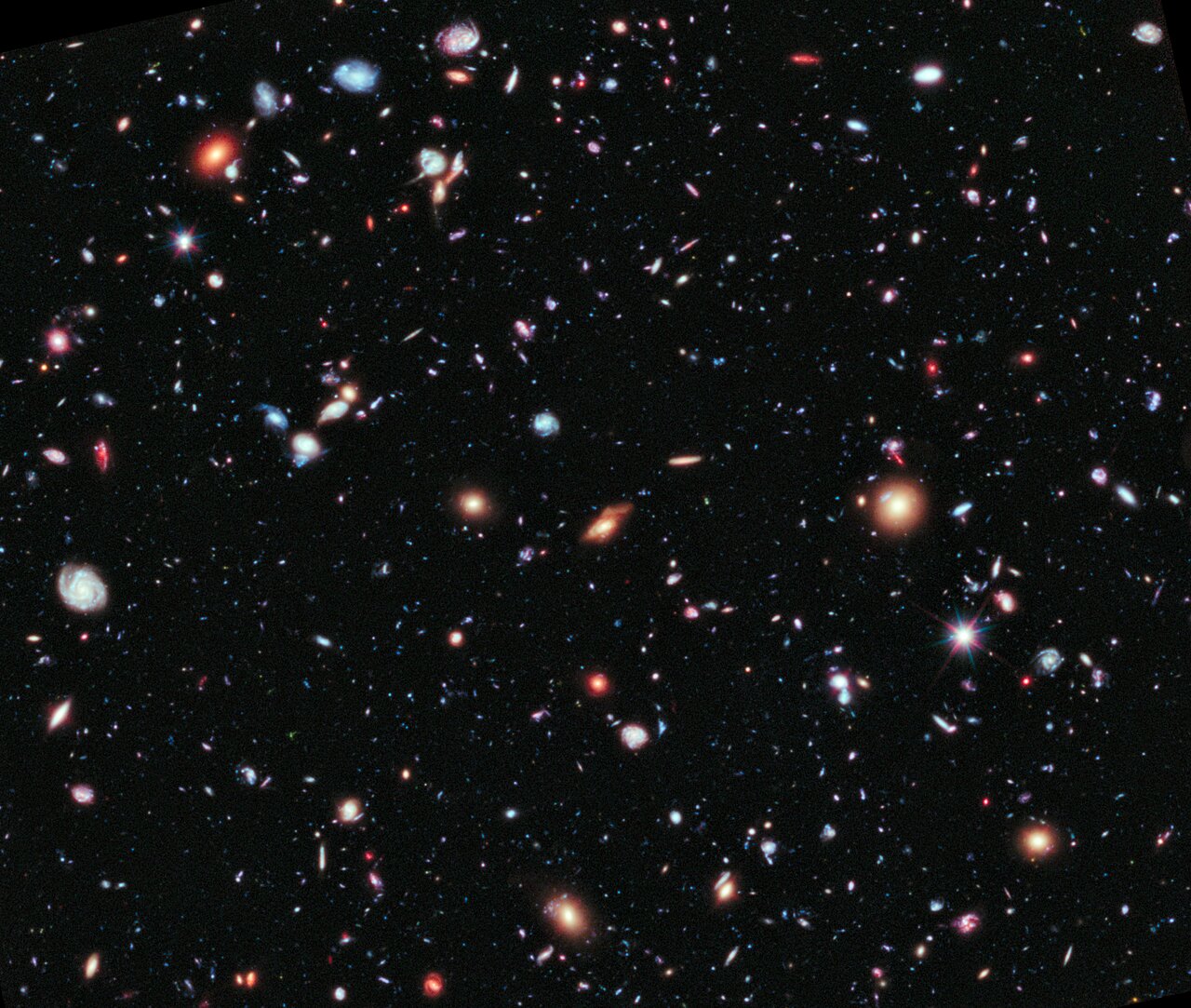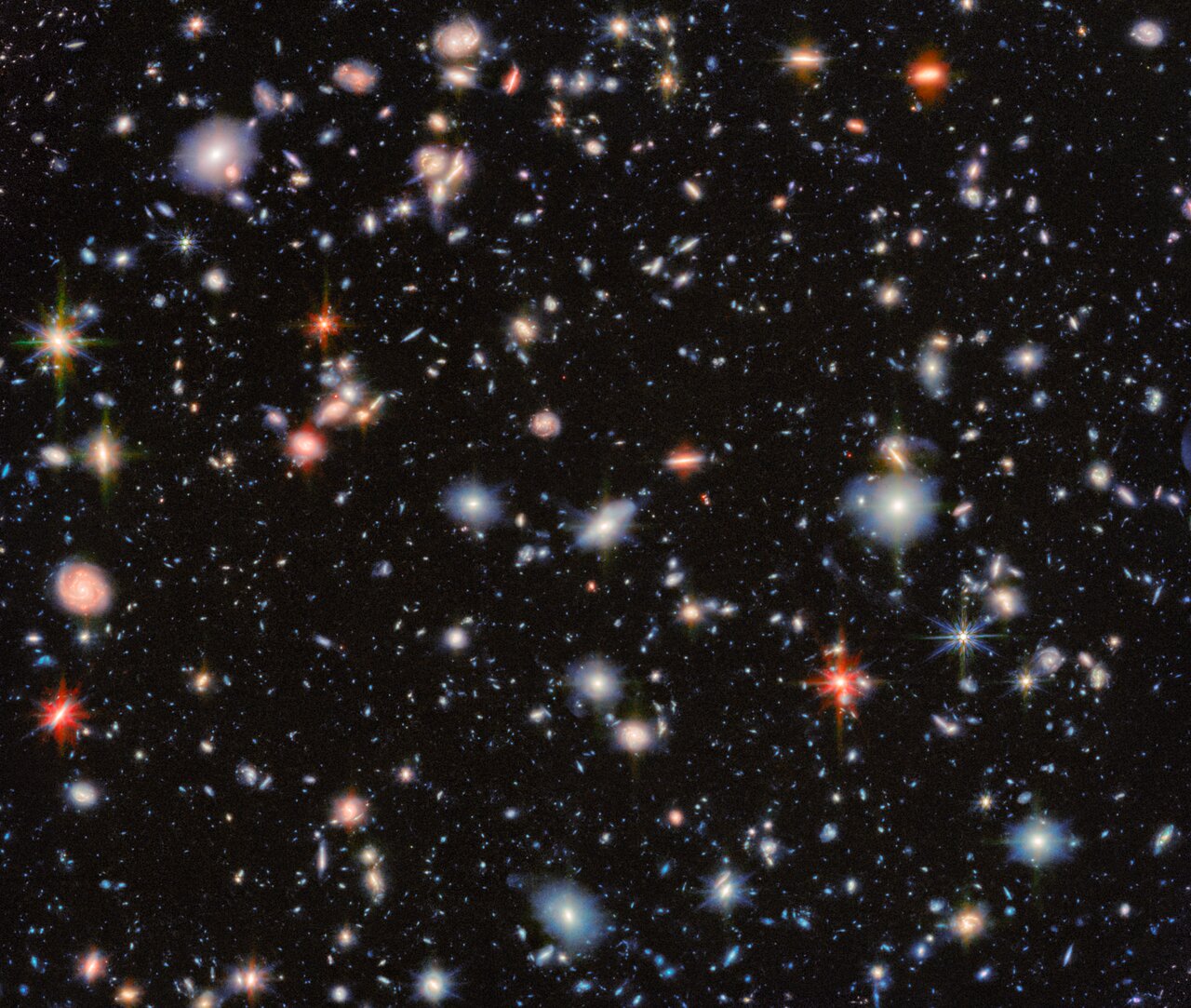A fresh look at a classic deep field
This slider tool provides a unique comparison to highlight the visible and infrared observations of one of the most iconic regions of the sky, the Hubble Ultra Deep Field.
When the original Hubble Ultra Deep Field was released by the NASA/ESA Hubble Space Telescope in 2004, it was the deepest image of the Universe ever taken. In 2025, Webb’s new view of this field is now one of the deepest views ever obtained of the Universe to date.
By returning to this legacy field first made famous by Hubble, Webb is continuing and expanding the deep field tradition — revealing new details, uncovering previously hidden galaxies, and offering fresh insights into the formation of the first cosmic structures.
Left:
This image shows a portion of the Hubble eXtreme Deep Field, or XDF, as seen by the NASA/ESA Hubble Space Telescope. This image, originally released in 2012, was taken of a patch of sky within the original Hubble Ultra Deep Field, released in 2004.
Right:
This image shows a new infrared view of this field through the eyes of two of Webb’s instruments. The result is a detailed view that reveals thousands of distant galaxies, some dating back to the earliest periods of cosmic history. The field, known as the MIRI Deep Imaging Survey (MIDIS) region, was observed with the shortest-wavelength filter of Webb’s Mid-Infrared Instrument (MIRI) for nearly 41 hours. Combined with data from Webb’s Near-Infrared Camera (NIRCam), this image allows astronomers to explore how galaxies formed and evolved over billions of years.
Credit:Left: NASA, ESA, G. Illingworth, D. Magee, and P. Oesch (University of California, Santa Cruz), R. Bouwens (Leiden University), and the HUDF09 Team
Right: ESA/Webb, NASA & CSA, G. Östlin, P. G. Perez-Gonzalez, J. Melinder, the JADES Collaboration, the MIDIS collaboration, M. Zamani (ESA/Webb)
About the Images
| Id: | potm2507a | |
|---|---|---|
| Release date: | 1 August 2025, 10:00 | |





